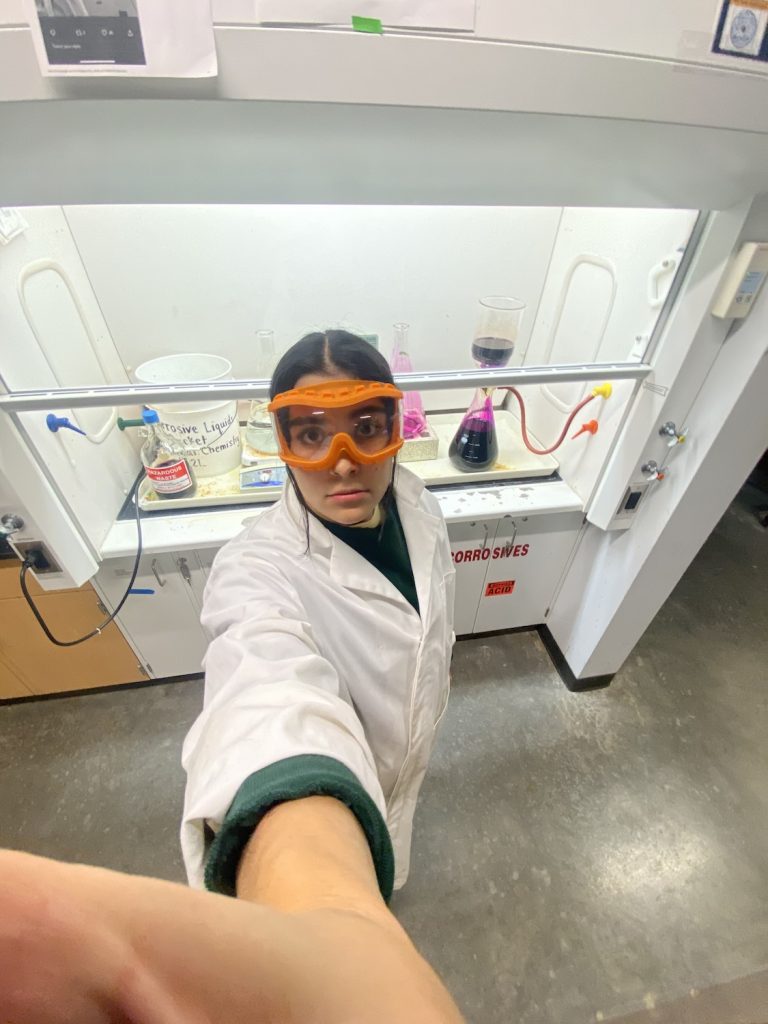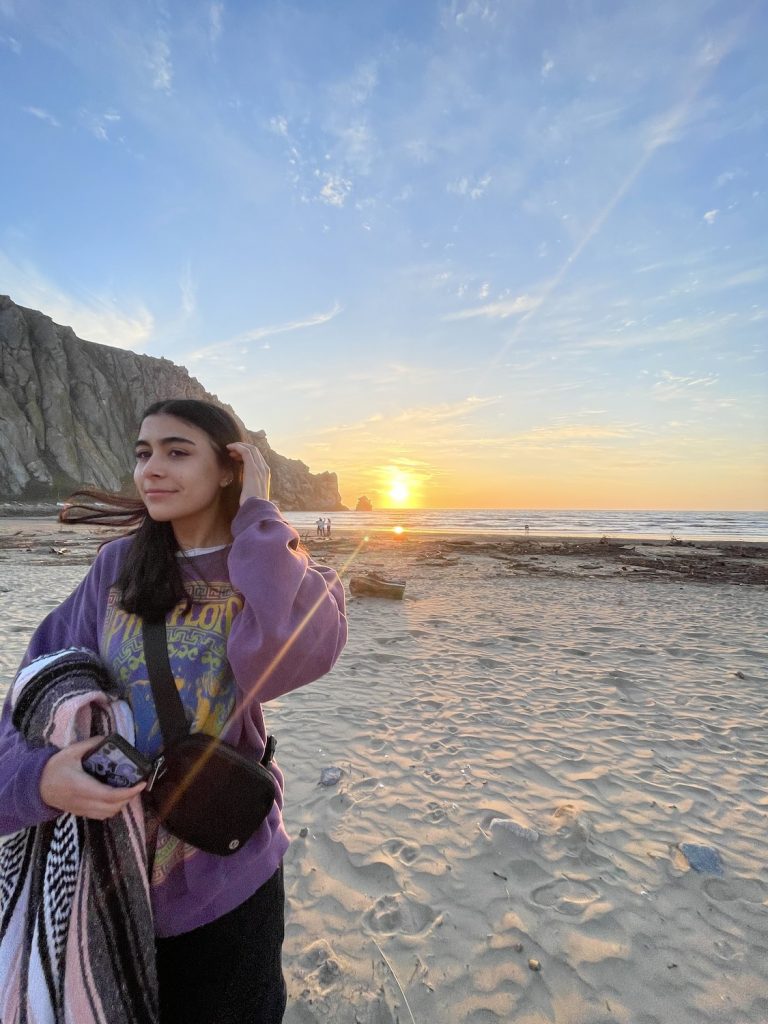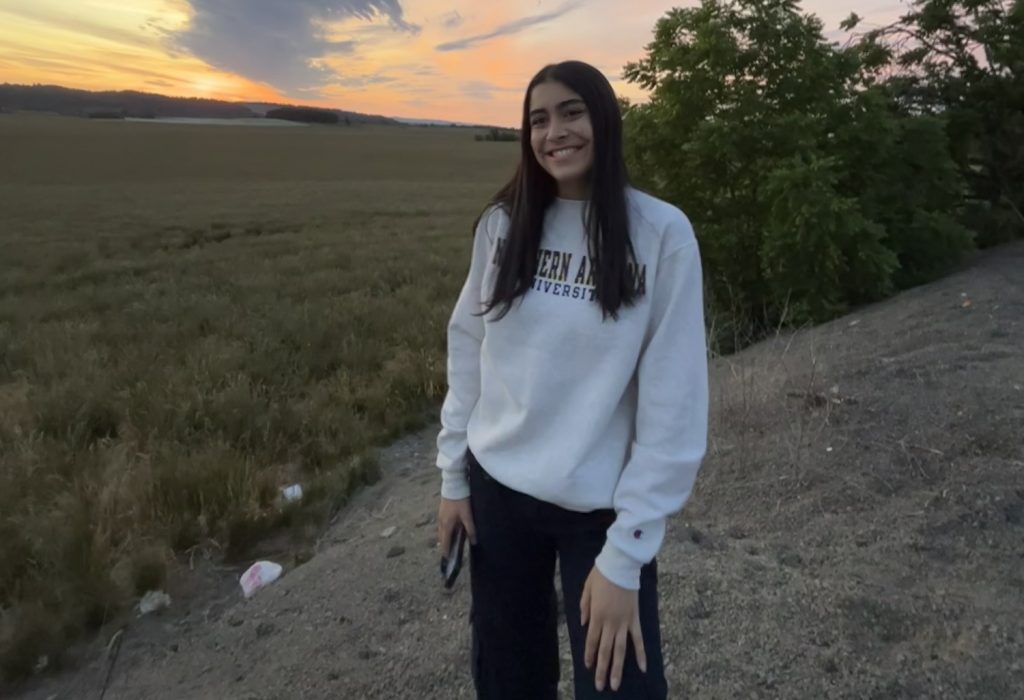Cecilia Perez, a junior bound for medical school, has always been passionate about women’s health. Laboratory work, not so much.
“So many pre-med students feel pressure to work in a lab setting with rodents or test tube samples,” Perez said. “I wanted to get into research, but labs aren’t my thing.”
Last year, the biomedical science major and Flagstaff Medical Center pharmacy technician was thrilled to find another way into research that doesn’t require nitrile gloves or a hazmat suit: The All of Us Scholars Program. Established by the Foundation for the National Institutes of Health, the program aims to increase diversity in biomedical research by pairing students from underrepresented backgrounds with mentors who are experts in their fields.

As an All of Us scholar, Perez was paired with Rachel Everhart, an associate professor of internal medicine at the University of Colorado Anschutz Medical Campus, in Fall 2023. Under Everhart’s guidance, Perez chose to pursue a research project on an understudied topic: women of color who struggle with endometriosis, a disease that causes severe pelvic pain, heavy bleeding during menstruation and issues becoming pregnant.
“It’s been said that endometriosis is a ‘white woman’s disease,’ because we don’t have a lot of information on how it affects racial and ethnic minorities,” Perez said. “But the cool thing about All of Us is, it’s about creating and studying data on people who are typically underrepresented in health studies and databases. About 45% of people in the All of Us data workbench are racial and ethnic minorities, people who live below the poverty line, people who are disabled and other underrepresented groups.”
Over the course of the fall and early winter, Perez compared statistics from the All of Us database—which brings together thousands of health records, survey responses, Fitbit numbers and more—with data from a Kaiser Permanente study on endometriosis. The Kaiser study, she said, painted a picture of a United States where few women of color suffer from the disease. The All of Us database, by contrast, demonstrated that many American women of color report experiencing symptoms consistent with endometriosis, but they often struggle to get treatment.
“I did some research on women with endometriosis who have not gone to the doctor in the last 12 months or aren’t getting proper treatment,” Perez said. “I found out there are so many reasons why: They can’t take time off work, they don’t have childcare, they live in a rural area and aren’t near any medical providers or they’re just nervous to see a provider because they’re not sure how much it will cost.”

Later this semester, Perez will present her findings on a Zoom call with other All of Us scholars, where she could be selected to represent the program at an upcoming research conference. She’ll also share her findings at the NAU Undergraduate symposium on Friday, April 26.
“White women are typically going to the doctor and getting diagnosed more, but that doesn’t mean others aren’t also suffering,” Perez said. “I want to show how important it is for studies to consider all the social and cultural factors.”
Perez also hopes to use her platform at the symposium to raise awareness of the All of Us program, which opens the door to research opportunities for students in high school, college and graduate school. Perez wishes she’d known about the program earlier; as a high schooler in Corvallis, Oregon, she already had her sights set on medical school and a residency in obstetrics and gynecology.
“It can be scary when you want to get into research, but you don’t know how,” Perez said. “All of Us makes it so easy: You have someone who’s guiding you, but you also have free rein to focus on any subject you want, whether it’s psychology, disease or mental health. It’s a great way to use your knowledge to help other people.”
Jill Kimball | NAU Communications
(928) 523-2282 | jill.kimball@nau.edu




